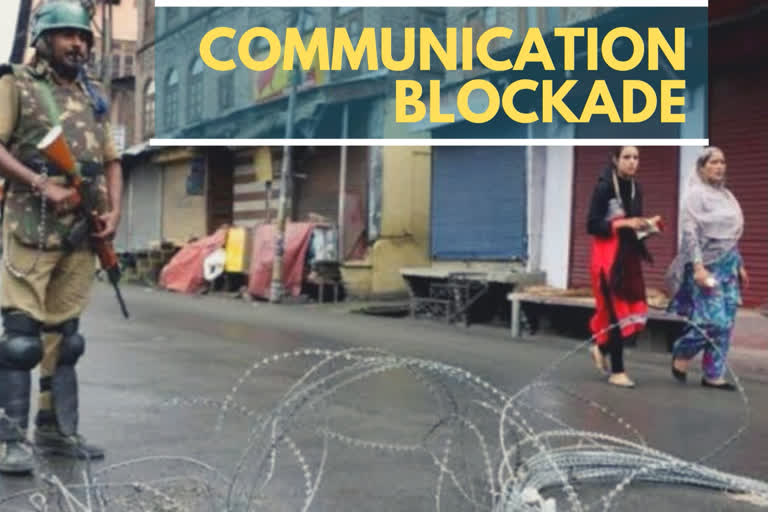New Delhi:Shutting down mobile, landline and internet services for 90 days in Jammu and Kashmir was "by no means a temporary measure" following the abrogation of Article 370 of the Constitution, the Supreme Court was told on Wednesday.
The orders passed by the IGP, Kashmir range, shutting down the telecommunications services in the state, were prima facie illegal as an officer of the home secretary's rank was authorised to pass such orders, a bench headed by Justice N V Ramana was told by lawyer Vrinda Grover, appearing in a case for Anuradha Bhasin, the executive editor of Kashmir Times.
Referring to the provisions of the Temporary Suspension of Telecom Services (Public Emergency or Public Safety) Rules, 2017 and the Indian Telegraph Act, Grover said, "The orders have been issued by the Inspector General of Police, Kashmir range. But as per Rule 2(1), no one below the rank of the central or state home secretary has the authority to pass such orders."
Referring to an additional affidavit filed by the Jammu and Kashmir administration, the lawyer said the landline services were snapped on certain grounds, including misuse of data services, and termed it "bizarre".
Bhasin has challenged the restrictions imposed in the valley and alleged that those violated the freedom of speech and expression of the press.
"On the pretext of stopping misuse of data services, the state government shut down the landline services in the state," Grover said, adding that such kind of a communication blockade for a period of 90 days was "by no means a temporary measure".
At the outset, the lawyer said the orders passed by the administration were "without any application of mind", adding that one of those was for reducing the internet speed from 4G to 2G, but the internet was completely shut down in Jammu and Kashmir following the decision to abrogate Article 370.
Read: NC urges govt to release political leaders in Jammu and Kashmir
"Is national security not a good ground for such a ban?," the bench, also comprising justices R Subhash Reddy and B R Gavai, asked.
"As per the administration, the orders were passed on the ground of law and order and not on the ground of security of the state," Grover said, adding that the authorities were not apprehending "a threat to the security of the nation".
